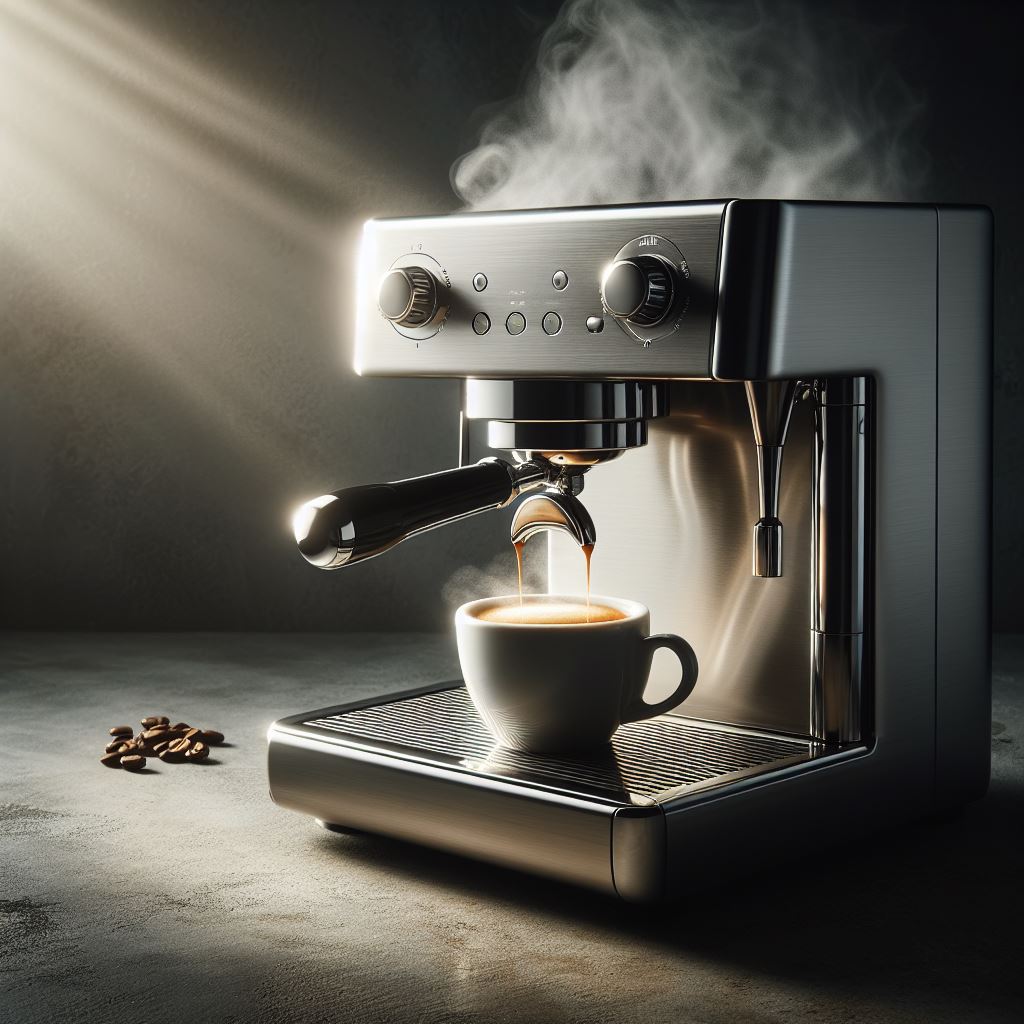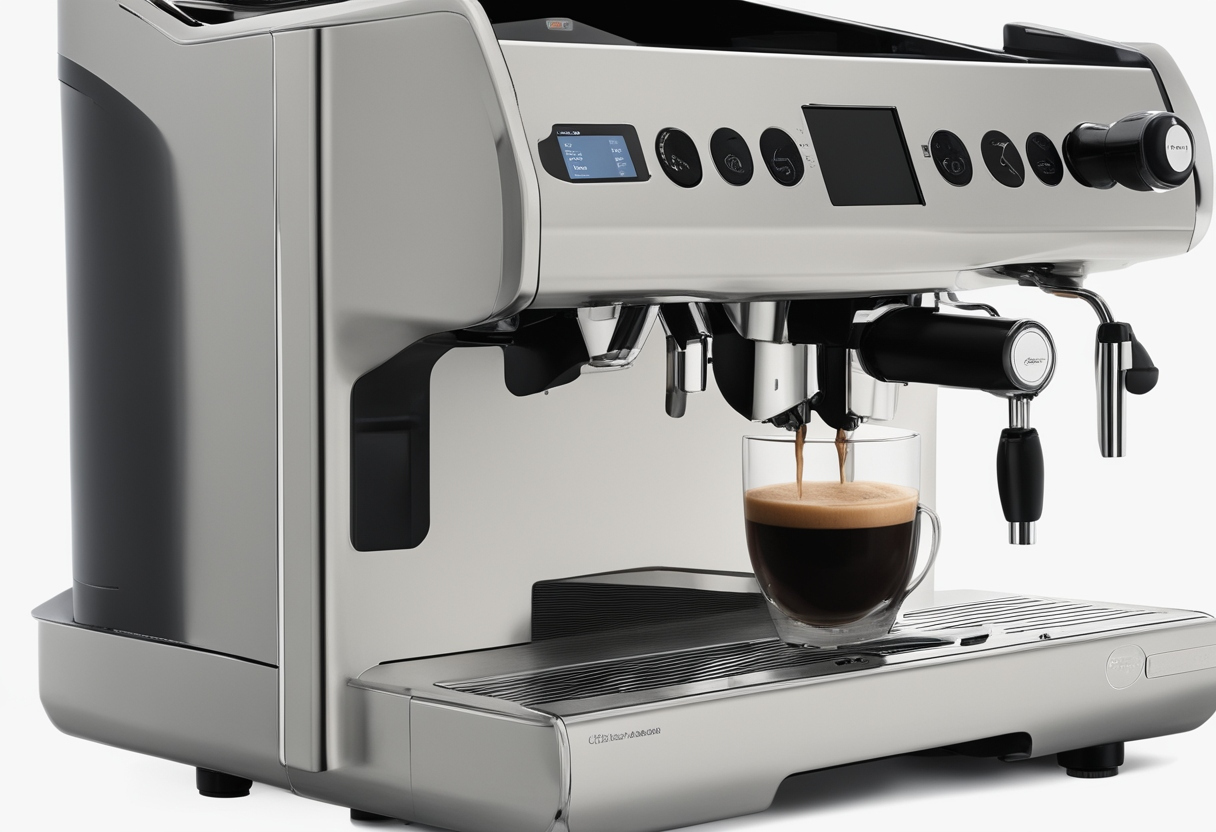The Role of MLCC in Coffee Machine

Multilayer Ceramic Capacitors (MLCCs) are essential components in coffee machines, playing a crucial role in their functionality and performance. MLCCs are used in various parts of coffee machines, including power supply units, control circuits, and temperature sensors. They are known for their high capacitance-to-volume ratio, which allows them to store and release electrical energy efficiently.
In coffee machines, MLCCs help regulate voltage, filter noise in power supplies, and stabilize circuits, ensuring smooth and consistent operation. They also play a role in maintaining temperature levels, which is crucial for brewing the perfect cup of coffee. Without MLCCs, coffee machines would not be able to function effectively, highlighting the importance of these components in coffee machine design.

Key Functions of MLCCs in Coffee Machines
Noise Filtering: MLCC is used in coffee machines to filter noise in power supplies, ensuring that the electrical signals are clean and stable. This helps prevent interference and ensures smooth operation of the machine.
Voltage Stabilization: MLCCs help stabilize voltage in coffee machines, ensuring that the electrical components receive a consistent and reliable power supply. This is crucial for maintaining the proper functioning of the machine and preventing damage to sensitive components.
Temperature Regulation: MLCCs are used in temperature sensors in coffee machines to help regulate the temperature of the brewing process. This ensures that the coffee is brewed at the optimal temperature for flavor extraction.
Control Circuit Capacitance: MLCCs are used in control circuits in coffee machines to provide capacitance, which helps control the flow of electricity and ensures that the circuits function properly. This is essential for the overall operation of the machine.
Compact Size: MLCCs are known for their small size and high capacitance-to-volume ratio, making them ideal for use in compact coffee machines where space is limited.
MLCC Requirements for Coffee Machines
Temperature Resistance: MLCCs used in coffee machines need to be able to withstand high temperatures, as they are often exposed to heat generated during the brewing process. They should have a high operating temperature range to ensure reliable performance.
High Capacitance: MLCCs used in coffee machines should have a high capacitance to effectively filter noise and stabilize voltage. This helps ensure smooth and consistent operation of the machine, especially during peak usage times.
Reliability: MLCCs used in coffee machines should be highly reliable to ensure long-term performance. They should be able to withstand frequent use and temperature fluctuations without failing.
Size Constraints: MLCCs used in coffee machines should be compact to fit into the limited space available. They should have a high capacitance-to-volume ratio to provide the required capacitance in a small package.
Cost-Effectiveness: MLCCs used in coffee machines should be cost-effective to keep the overall cost of the machine competitive. They should provide the required performance at a reasonable cost.
Compliance with Regulations: MLCCs used in coffee machines should comply with relevant regulations and standards to ensure safety and performance. They should be RoHS compliant and meet other relevant requirements.

Advantages of MLCCs in Coffee Machines
Efficient Noise Filtering: MLCCs are highly effective at filtering noise in power supplies, ensuring that the electrical signals powering the coffee machine are clean and stable. This helps prevent interference and ensures smooth operation.
Stable Voltage Regulation: MLCCs help stabilize voltage in coffee machines, ensuring that the electrical components receive a consistent and reliable power supply. This is crucial for maintaining the proper functioning of the machine and preventing damage to sensitive components.
Temperature Control: MLCCs are used in temperature sensors in coffee machines to help regulate the temperature of the brewing process. This ensures that the coffee is brewed at the optimal temperature for flavor extraction.
Compact Size: MLCCs are known for their small size and high capacitance-to-volume ratio, making them ideal for use in compact coffee machines where space is limited.
Reliability: MLCCs are highly reliable components, able to withstand frequent use and temperature fluctuations without failing. This ensures the long-term performance of the coffee machine.
Cost-Effectiveness: MLCCs are cost-effective components, providing the required performance at a reasonable cost. This helps keep the overall cost of the coffee machine competitive.
MLCC Selection Guide for Coffee Machine Manufacturers
Voltage Rating: Choose MLCCs with a voltage rating that exceeds the maximum operating voltage of the coffee machine to ensure reliable performance.
Capacitance Value: Select MLCCs with the appropriate capacitance value for the specific application within the coffee machine. Consider the required capacitance for filtering noise, stabilizing voltage, and other functions.
Temperature Range: Ensure that the MLCCs can operate within the temperature range of the coffee machine. Select MLCCs with a wide temperature range to ensure reliable performance in varying environmental conditions.
Package Size: Choose MLCCs with a package size that fits the space constraints of the coffee machine. Consider the available space and the required capacitance when selecting the package size.
ESR Rating: Consider the Equivalent Series Resistance (ESR) rating of the MLCCs, especially for applications requiring stable voltage regulation. Choose MLCCs with a low ESR rating for better performance.
Reliability: Select MLCCs from reputable manufacturers known for producing high-quality, reliable components. Consider the expected lifespan of the coffee machine and choose MLCCs that can meet the reliability requirements.
Cost: Consider the cost of the MLCCs and ensure that they fit within the budget of the coffee machine. Balance the cost with the required performance and reliability of the MLCCs.
Compliance: Ensure that the selected MLCCs comply with relevant regulations and standards, such as RoHS compliance, to ensure safety and environmental sustainability.
